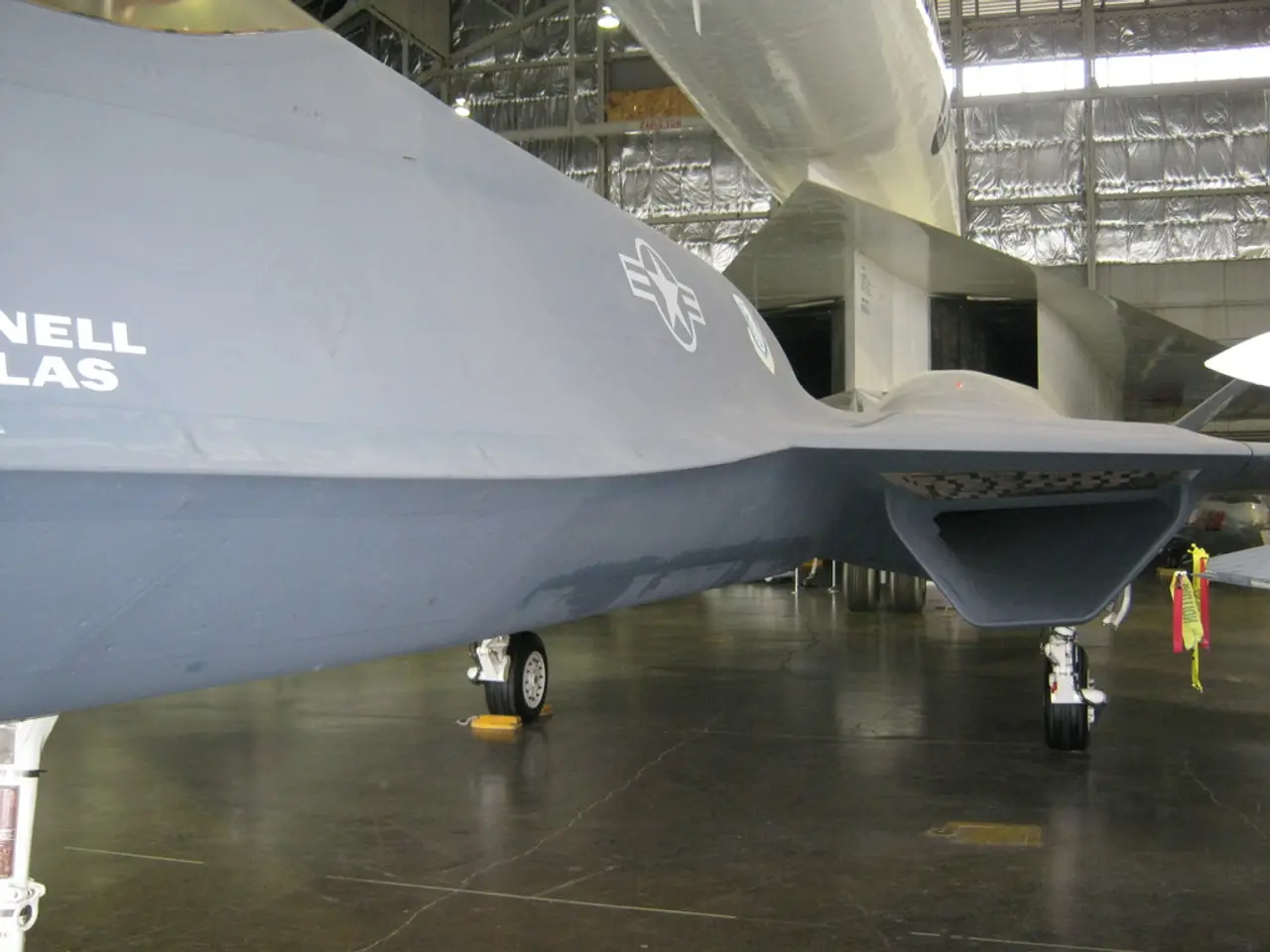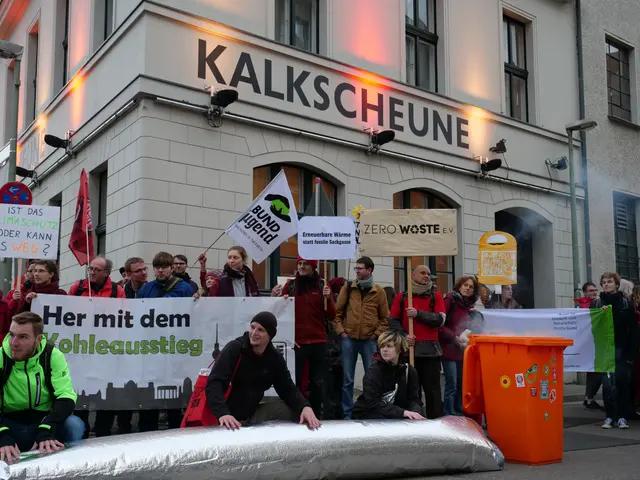Dornier 228 Plane's First Flight Test Campaign Successfully Conducted by ZeroAvia
ZeroAvia, a leader in zero-emission aviation, has made significant strides in revolutionising the aviation industry with its hydrogen-electric engine. The engine generates electricity in fuel cells, powering electric motors to turn the aircraft's propellers, resulting in low-temperature water emissions and a total climate effect reduction of over 90%.
The initial prototype ZA600 hydrogen-electric engine, installed in a Dornier 228, has met the highest anticipated performance threshold during testing. Over the course of the last six months, ZeroAvia has sequentially tested different areas of performance, following the breakthrough, world-first flight of the system in January. The testing campaign involved ten successful flight tests of the retrofitted aircraft.
The Dornier 228 flight testing programme is part of the HyFlyer II Project, funded by the UK Government via the Aerospace Technology Institute, Innovate UK, and the Department for Business and Trade. The campaign has seen the aircraft fly at 5,000 feet, perform an endurance test at 23 minutes, operate in a wide temperature range from just above freezing to almost 30°C, and reach the maximum allowable speed under the Permit to Fly issued by the CAA.
The hydrogen-electric engine has matched the power of the conventional, fossil fuel engine on the opposite wing, with the pilots able to fly with thrust generated only from the experimental clean propulsion system in certain tests. Critically, throughout all phases of testing, the fuel cell power generation and electric propulsion system, the core components of the novel zero-emission engine, performed at or above expectations.
ZeroAvia has secured experimental certificates for its three prototype aircraft from the CAA and FAA. The company has passed significant flight test milestones and secured pre-orders for nearly 2,000 engines from major global airlines, with future revenue potential over $10bn.
Val Miftakhov, Founder & CEO, ZeroAvia, said: "Zero-emission flight technologies are moving from promise to delivery and our amazing team is leading the way with this testing programme." Nusrat Ghani MP added: "ZeroAvia is making fantastic progress in pioneering zero emission flight."
After the successful initial flight test campaign with the Dornier 228, ZeroAvia’s next plans focus on scaling their hydrogen-electric engines to power larger regional aircraft with up to 20 seats and eventually 40 to 80 seats. They are progressing toward certification of these larger powertrains, targeting regional aircraft such as the ATR 42 and 72 models, with plans also to develop modular hydrogen-electric engines compatible with existing and new aircraft architectures.
ZeroAvia is based in the US and the UK. The company is on track for commercial operations in 2025 and is part of the UK Government's Jet Zero Council. Additionally, ZeroAvia is collaborating with other aerospace developers, such as Horizon Aircraft, to explore hydrogen-electric propulsion options for advanced hybrid eVTOL aircraft, specifically the Cavorite X7, continuing efforts to expand the hydrogen powertrain applications beyond fixed-wing regional aircraft to vertical take-off and landing vehicles.
To summarise, the upcoming stages after the Dornier 228 tests include:
- Certification and scaling of hydrogen-electric engines for 20-seat and larger regional aircraft using frames like ATR 42/72 and Dash 8.
- Development and integration of modular hydrogen-electric powertrains adaptable to various aircraft.
- Expanding partnerships and testing for hydrogen propulsion in eVTOL and hybrid aircraft such as the Cavorite X7.
- Continued acquisition and deployment of key patents to advance propulsion technology and infrastructure for hydrogen aviation.
For updates on ZeroAvia's progress, follow them on Facebook, Twitter, Instagram, LinkedIn, and YouTube.
[1] ZeroAvia. (2021). ZeroAvia Announces Completion of Initial Prototype ZA600 Flight Testing Campaign. [online] Available at: https://www.zeroavia.com/zeroavia-announces-completion-of-initial-prototype-za600-flight-testing-campaign/ [Accessed 15 Mar. 2023].
[2] ZeroAvia. (2021). ZeroAvia and Horizon Aircraft Announce Collaboration to Develop Hydrogen-Electric Propulsion for Advanced Hybrid eVTOL Aircraft. [online] Available at: https://www.zeroavia.com/zeroavia-and-horizon-aircraft-announce-collaboration-to-develop-hydrogen-electric-propulsion-for-advanced-hybrid-evtol-aircraft/ [Accessed 15 Mar. 2023].
[3] ZeroAvia. (2021). ZeroAvia and Horizon Aircraft Announce Collaboration to Develop Hydrogen-Electric Propulsion for Advanced Hybrid eVTOL Aircraft. [online] Available at: https://www.zeroavia.com/zeroavia-and-horizon-aircraft-announce-collaboration-to-develop-hydrogen-electric-propulsion-for-advanced-hybrid-evtol-aircraft/ [Accessed 15 Mar. 2023].
[4] ZeroAvia. (2021). ZeroAvia Receives Key Patents for Hydrogen-Electric Propulsion Systems. [online] Available at: https://www.zeroavia.com/zeroavia-receives-key-patents-for-hydrogen-electric-propulsion-systems/ [Accessed 15 Mar. 2023].
[5] ZeroAvia. (2021). ZeroAvia Receives Key Patents for Hydrogen-Electric Propulsion Systems. [online] Available at: https://www.zeroavia.com/zeroavia-receives-key-patents-for-hydrogen-electric-propulsion-systems/ [Accessed 15 Mar. 2023].
- The hydrogen-electric engine technology developed by ZeroAvia, as shown in the Dornier 228 flight tests, presents a significant opportunity for the aerospace industry to transition towards a more sustainable future in financing and technology.
- With the success of the initial prototype ZA600 engine and the plans to scale it for larger regional aircraft, ZeroAvia's innovations in zero-emission aviation have the potential to influence various sectors of the finance and technology industries, particularly those invested in the environment and clean energy solutions.








